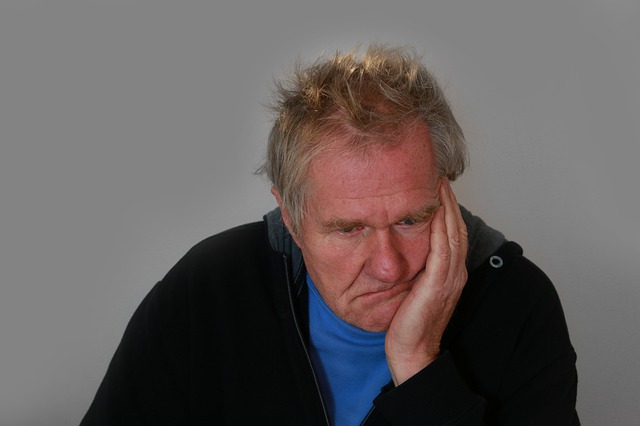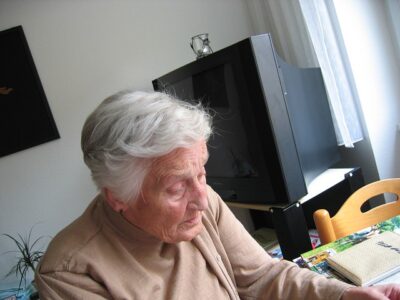What is Dementia?
When most people hear the term ‘dementia’ they think of an older individual who is losing their memory— and they’re not completely wrong when thinking this. However, dementia is more of an umbrella term that describes several diseases that all usually have the same main symptoms. These symptoms significantly impair daily functioning, and typically include:
- Behavioral and personality changes
- Loss of emotional control
- Memory loss
- Poor judgment
It’s important to note that mild memory loss does not indicate the beginning of dementia, but a progressive and persistent loss of overall cognitive functioning does. Here’s a look at the more specific types of dementia, what may cause them, and how they’re treated.
The 5 Main Types of Dementia:
1: Alzheimer’s Disease:
It’s safe to assume that Alzheimer’s disease is the most well-known type of dementia, and it’s the most common type, accounting for possibly up to 80% of dementia cases. Eventually, Alzheimer’s disease leads to tissue shrinkage in parts of the brain and broken connections between nerve cells. This physical change in the brain leads to the disease’s most common symptoms (i.e., memory loss, poor judgment, etc.).
2: Frontotemporal Dementia:
This type of dementia is lesser-known, and it’s also one of the least common types. As the name suggests, frontotemporal dementia affects the frontal and temporal lobes of the brain which affects judgment, problem-solving, self-control, memory, language, and emotional regulation.
3: Lewy Body Dementia:
This type of dementia is also less common than Alzheimer’s, and it’s characterized by the presence of a protein referred to as Lewy bodies in the nerve cells of the brain. Lewy bodies are associated with nerve cells losing connection and lowered levels of chemical messengers in the brain.
4: Vascular Dementia:
This is the second most common type of dementia, being caused by reduced blood flow to the brain. This reduced blood flow is caused by damaged blood vessels, which leads to memory problems, thinking difficulties, and a decrease in reasoning skills.
5: Mixed:
As the name suggests, mixed dementia is when a person has more than one type of dementia— usually no more than two different types. When a person has more than one type of dementia, it’s usually almost always Alzheimer’s disease paired with another type of dementia (usually vascular or Lewy body). About 10% of people with dementia have a mixed type.
What Causes Dementia?
Dementia is a complex age-related degenerative disorder that’s not completely understood by researchers. However, the main cause of dementia (no matter the type) is caused by damage to the nerve cells of the brain. The exact cause of the damage to these nerve cells may or may not be known, but there are certain things, such as a stroke or certain eye conditions that are known to lead to dementia. There are also existing brain disorders that can lead to dementia.
Creutzfeldt-Jakob Disease:
This is a rare and fatal brain disorder with no known cause that can lead to dementia. It may be caused by deposits of infectious proteins called prions or by exposure to diseased tissue.
Huntington’s Disease:
This is a relatively well-known genetic disorder that breaks down nerve cells. If nerve cells in the brain are broken down, dementia can occur.
Korsakoff Syndrome:
This is a chronic memory disorder typically caused by a severe vitamin B1 (thiamine) deficiency, which can be brought on by heavy alcohol use.
Normal Pressure Hydrocephalus (NPH)
NPH is caused by an accumulation of fluid in the brain that causes it to swell and become enlarged.
Parkinson’s Disease:
This is another well-known degenerative disease that can lead to a buildup of Lewy bodies in the blood. Risk factors can include family history, but an increase in Parkinson’s disease has been found among farmers who’ve used the popular weed killer Paraquat on their crops. These individuals may be able to receive compensation when contacting a personal injury lawyer.
Traumatic Brain Injury (TBI):
TBI is caused by blunt head trauma, which can result from any blow to the head. This is also thought to be another cause of Parkinson’s.
How Dementia is Treated:
Treatment for dementia depends on the type and the stage. The majority of dementia types can’t be cured, but symptoms can be alleviated and progression can be slowed. The most common types of treatment are medications and therapies.
Dementia is a complicated and complex age-related disorder, and much is still not known about it. While most causes are unknown, genetics and environmental factors can play a part in development.










